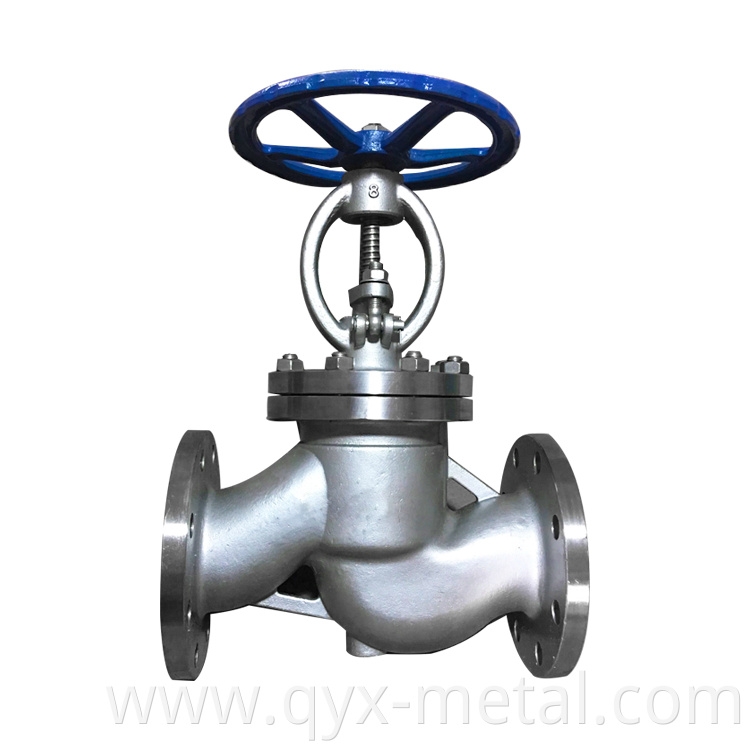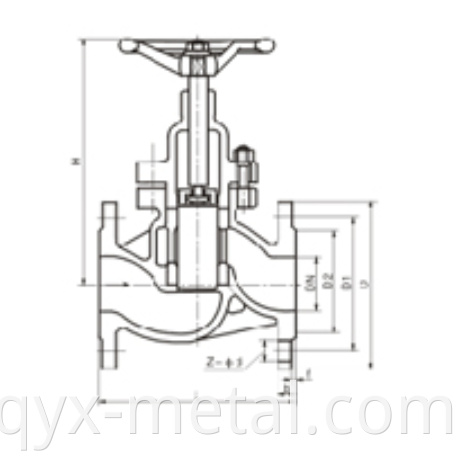DN20 Durable Manual Control Titanium Globe Valve
DN20 Dual Manual Control Titanium Globe Valve is a robust valve designed for precise flow control of fluids or gases in demanding industrial applications. Constructed with high-quality titanium, this valve offers excellent resistance to corrosion and erosion, making it ideal for use in harsh environments. The dual manual control feature allows for accurate adjustments to the flow rate from both ends of the valve, enabling enhanced precision and flexibility in regulating fluid or gas flow.

To introduce the application of titanium alloy in ship's valves, and give an example of a Titanium Alloy Globe Valve to explain the main structural features, design and calculation of the sealing and strength performances of the Titanium Alloy Gate Valve. Paying attention to its electro-corrosion in sea water and matters in manufacturing, to indicate that Ti and titanium alloy have conspicuous advantages of light specific gravity, high strength and corrosion-resistance etc. and a vast range of prospects for application in ship and ocean engineering.
Titanium valves and titanium alloys with light specific gravity, high strength, corrosion resistance, good pressure resistance and other outstanding advantages, is now widely used in aviation, cosmic development, petroleum, chemical industry, metallurgy, electric power, medicine and health, instrumentation and other industries. In order to meet the needs of ocean engineering deep-sea vessels, ships, marine valves and other fields, the valve technology network will be its titanium alloys used in the manufacture of valves, titanium valves in the process of development, with new technologies, new materials and new standards to regulate the design of products, in line with the requirements of the national policy on high-tech products, is an emerging, and promising materials application technology, thereby improving the quality of valves, improve the performance of the product!
Corrosion resistance of titanium
Titanium Material is a highly chemically active metal, however, it exhibits particularly excellent corrosion resistance to most corrosive media. The reason for this is that titanium has a great affinity for oxygen, and when titanium is exposed to the atmosphere, or to any oxygen-containing medium, a strong and tightly packed passive oxidizing film is immediately formed on the surface. This film is very stable, and if mechanical damage occurs, it will immediately re-form (as long as a certain amount of oxygen is present).
Titanium metal has several special forms of corrosion, such as high temperature corrosion, stress corrosion, pitting corrosion, crevice corrosion, galvanic coupling corrosion, corrosion fatigue, etc., but titanium is applied to marine valves is mainly concerned about galvanic coupling corrosion.
Galvanic coupling corrosion is when two different metals in an electrolyte constitutes a galvanic couple, as the anode of the metal corrosion can be accelerated. The amount of corrosion depends on the electrode potential difference between the two materials, but also depends on the area ratio of the anode and cathode and the polarization characteristics of both. Titanium differs from normal materials in that it is passive in many media and shows a potential similar to that of passive 18-8 stainless steel. The potential of titanium in seawater is -0.10V (for saturated calomel electrodes). Titanium in contact with Monel alloys, Hastelloy C,18-8 stainless steel, and aluminum-bronze tube sheets with Ni added has a very small potential difference and does not produce galvanic coupling corrosion. However, also in seawater, when titanium is in contact with aluminum, zinc, and carbon steel, the aluminum and zinc are corroded. However, their corrosion rate is smaller than the corrosion caused by contact with stainless steel. The extent of corrosion of these metals varies with the ratio of the surface area of titanium to that of the metal in contact with titanium. When the ratio of the surface area of the metal in contact with titanium to that of titanium is 1:10(i.e., the ratio of the anode to the cathode area is1:10),the metal being contacted corrodes quickly. In contrast, when the surface area ratio of the metal in contact with titanium and titanium is 10:1, the corrosion rate is greatly reduced.
